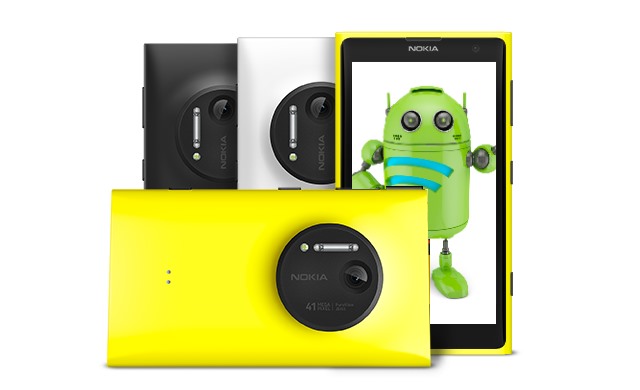
The mobile market is a four horse race... if we're being polite, that is. Really it's a battle between Apple's iOS and Google's Android. BlackBerry desperately neighs about its importance to the enterprise market, while Windows Phone stamps its hooves trying to gain attention as it's hauled off to the glue factory via the knacker's yard.
Microsoft's mobile OS may have gained ground in some parts of the world, but the reality is that it's struggling. Whenever we talk about Windows Phone it feels like the same topic comes up again and again, forcing us to re-tread old ground, bang the same drum. The app situation is dire; it's all but impossible to paint it any other way. But could opening up the ecosystem to Android apps save it from a slow and painful death?
While Windows Phone undoubtedly has its supporters, Microsoft has been flogging a dead horse for some time now. Having invested in the Lumia name, and currently working on bringing its desktop and mobile operating systems closer together, Microsoft clearly has no plans to pull the plug on Windows Phone any time soon. But something definitely needs to be done.
A recurring rumor that Microsoft might be considering adding Android app support to Windows Phone has resurfaced. This is something that may make many ears prick up with interest. The possibility that all of those apps that are currently missing from the Windows Phone Store could just be enough to make people give Windows Phone a second chance. So how likely is this? Could we see the like of Gmail on a Lumia handset (outside of a browser)?
Rumors like this are easy to dismiss as mindless ramblings or wishful thinking, but the rumor comes from a fairly reliable source -- Tom Warren from the Verge. Writing on Twitter he suggests that Android app support is indeed on the way to Windows Phone:
@monkbent @charlesarthur once Windows Mobile is released and eventually supports Android apps then the fate of WP will become clear
— Tom Warren (@tomwarren) December 29, 2014
Interest was piqued among his followers. Questioned about his source, Warren -- usually very dependable when it comes to Microsoft news -- didn't give much away, but added: "I know they're still working on the technical implementation. They wouldn't be doing that for nothing".
Reference to Windows Phone while at the same time reviving the long-dead Windows Mobile moniker, oddly, raised fewer questions. A slip of the tongue or a reference to an as-yet unknown shift in direction for Microsoft's mobile vision? We already know that Satya Nadella's new view is focused on mobile first, cloud first, and that Windows 10 aims to blur the boundaries between mobile and desktop.
Microsoft is not going to throw away its efforts and just ditch Windows Phone, as much as many people think it should -- too much time and money has been invested in it. But there are clearly limits to how much effort can be put into convincing developers that the platform is viable and worth producing apps for. Adding support for Android -- just as BlackBerry did... although perhaps we shouldn't read too much into that! -- could be the Elastoplast Microsoft needs to keep the platform alive, bringing more of the apps people want to Lumia handsets to produce a larger user-base.
On one hand creating a user-base by providing access to Android apps will get Microsoft what it wants -- more users. But on the other, it may not be enough to encourage development specifically for Windows Phone (or Windows Mobile for that matter). Which is more important -- users using the apps they want, or native apps? Where there is already an app crossover, it is often the case that the Android version of an app is better, has more features, looks nicer. Would developers be even less likely to bother producing apps specifically for Windows Phone? Would it mater at the end of the day?
Are collaborations like this a good idea? Windows Phone has been on life support for some time now. Microsoft is unlikely to pull the plug and let its baby die, but it's clear that something needs to be done to prop it up until the operating system has a better sense of direction. Maybe then it will be a serious contender in the race.
Photo credit: Kirill__M / Shutterstock

